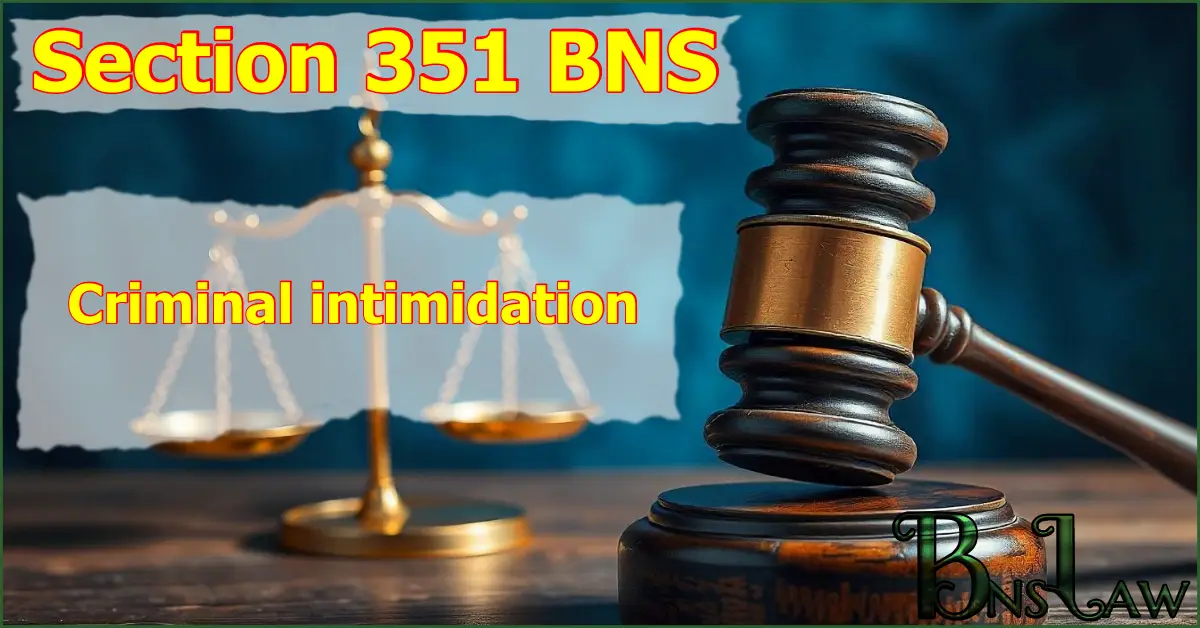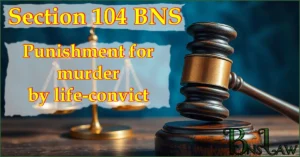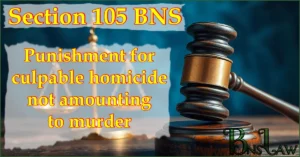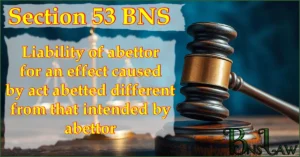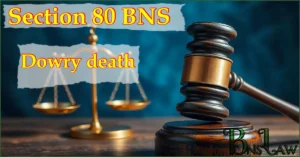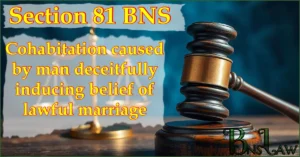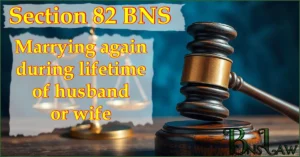Section 351 BNS | BNS 351
351(1) BNS
Whoever threatens another by any means, with any injury to his person, reputation or property, or to the person or reputation of any one in whom that person is interested, with intent to cause alarm to that person, or to cause that person to do any act which he is not legally bound to do, or to omit to do any act which that person is legally entitled to do, as the means of avoiding the execution of such threat, commits criminal intimidation.
Explanation— A threat to injure the reputation of any deceased person in whom the person threatened is interested, is within this section.
Illustration
A, for the purpose of inducing B to resist from prosecuting a civil suit, threatens to burn B’s house. A is guilty of criminal intimidation.
351(2) BNS
Whoever commits the offence of criminal intimidation shall be punished with imprisonment of either description for a term which may extend to two years, or with fine, or with both.
351(3) BNS
Whoever commits the offence of criminal intimidation by threatening to cause death or grievous hurt, or to cause the destruction of any property by fire, or to cause an offence punishable with death or imprisonment for life, or with imprisonment for a term which may extend to seven years, or to impute unchastity to a woman, shall be punished with imprisonment of either description for a term which may extend to seven years, or with fine, or with both.
351(4) BNS
Whoever commits the offence of criminal intimidation by an anonymous communication, or having taken precaution to conceal the name or abode of the person from whom the threat comes, shall be punished with imprisonment of either description for a term which may extend to two years, in addition to the punishment provided for the offence under sub-section (1).
READ OTHER SECTIONS OF CHAPTER XIX — OF CRIMINAL INTIMIDATION, INSULT, ANNOYANCE, DEFAMATION, ETC.
| Section No. | Section Title |
|---|---|
| 351 | Criminal intimidation. |
| 352 | Intentional insult with intent to provoke breach of peace. |
| 353 | Statements conducing to public mischief. |
| 354 | Act caused by inducing person to believe that he will be rendered an object of Divine displeasure. |
| 355 | Misconduct in public by a drunken person. |
| Of Defamation | |
| 356 | Defamation. |
| Of Breach Of Contract To Attend On And Supply Wants Of Helpless Person | |
| 357 | Breach of contract to attend on and supply wants of helpless person. |
FAQs of BNS Section 351
-
351 BNS punishment and fine
Punishment and fine under Section 351 of the BNS—
351(2): Imprisonment for 2 years, or fine, or both.
351(3): Imprisonment for 7 years, or fine, or both.
351(4): Imprisonment for 2 years, in addition to the punishment under section 351(1). -
351 BNS cognizable or not
The offence under Section 351(2), 350(3) and 350(4) of the BNS is non-cognizable.
-
351 BNS bailable or not
The offence under Section 351(2), 350(3) and 350(4) of the BNS is bailable.
-
351 BNS trial court
Offence specified in Section 351(2) of the BNS is triable by any Magistrate, while the offence specified in Section 351(3) and 351(4) is triable by the Magistrate of the first class.
Important Points
- Cognizable Offences: These are offences where a police officer can arrest a person without a warrant.
- Non-Cognizable Offences: These are offences where a police officer cannot arrest a person without a warrant.
- Bailable Offences: These are offences where the accused can get bail from the police station itself. All bailable offences are listed in the First Schedule of the Bharatiya Nagarik Suraksha Sanhita (BNSS).
- Non-Bailable Offences: Offences in which bail is not granted directly from the police station but after hearing the case in the court, the judge decides when bail will be granted. All non-bailable offences are listed in the first schedule of the Bharatiya Nagarik Suraksha Sanhita (BNSS).
- In the above FAQ, “trial court” means the court that has jurisdiction to try the offence.
- In the above FAQ, the expression “Magistrate of the first class” and “Any Magistrate” does not include Executive Magistrates.
Read other Sections of the BNS
Reference Link: New Criminal Laws (BNS), Ministry of Home Affairs

